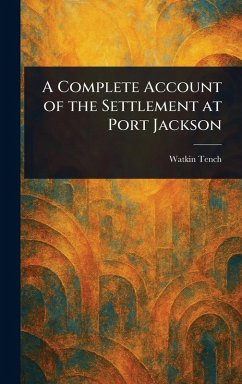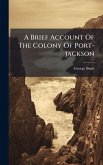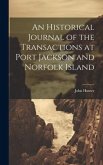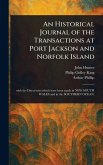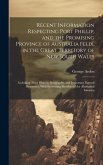"A Complete Account of the Settlement at Port Jackson" offers a firsthand, detailed record of the establishment of the first European settlement in New South Wales, Australia. Watkin Tench, an officer of the British Marines, provides an invaluable historical perspective on the challenges and triumphs of establishing a penal colony at Port Jackson. This meticulously prepared account details the early years of the settlement, painting a vivid picture of life in this remote and unfamiliar land. From the initial arrival of the First Fleet to the daily struggles for survival and the complex interactions with the indigenous population, Tench's narrative provides unparalleled insight into the realities of early Australian settlement. Explore the history of Australia's beginnings and the development of its unique societal structures through this important historical document. Ideal for anyone interested in Australian history, penal colonies, or the broader story of Oceania. This work has been selected by scholars as being culturally important, and is part of the knowledge base of civilization as we know it. This work is in the public domain in the United States of America, and possibly other nations. Within the United States, you may freely copy and distribute this work, as no entity (individual or corporate) has a copyright on the body of the work. Scholars believe, and we concur, that this work is important enough to be preserved, reproduced, and made generally available to the public. We appreciate your support of the preservation process, and thank you for being an important part of keeping this knowledge alive and relevant.
Bitte wählen Sie Ihr Anliegen aus.
Rechnungen
Retourenschein anfordern
Bestellstatus
Storno

